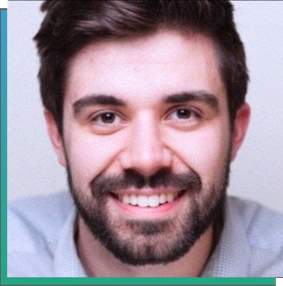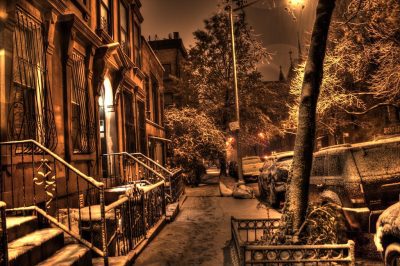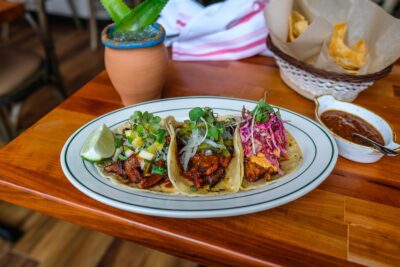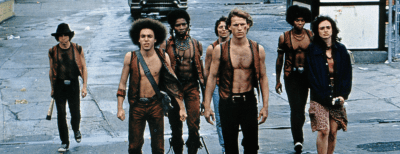Photo by Cas Holmes, courtesy Unsplash
High Society: The Brooklyn Psychedelic Society preaches psychedelic healing
The Brooklyn Psyechedlic Society aims to offer a safe space for people from all walks of life to speak freely about their experiences
It all started with a dose of MDMA at a rave. Or, more accurately, “a weird loud music event in Syracuse that was trying to be a rave, but was really just me and a family dancing,” as Colin Pugh describes it.
In 2014, Pugh, then 23, had recently lost a close friend to suicide, so the quality of the rave was irrelevant. What was—and remains—relevant was the unintentionally healing experience he had while on molly.
“I had taken MDMA at the rave, but didn’t really feel anything until the afterparty, which was in a comfy, two-story house in the university area of Syracuse,” says Pugh. “Suddenly I felt this rocket of energy move up my solar plexus to my chest. Immediately, I was like ‘holy God!’, walked out onto the porch outside and found a couch.”
It was on that couch that he was able to begin absorbing his friend’s death.
“I processed all these emotions, not even about my friend, but about my own shortcomings and anxieties,” he says. “The armor that had been around my heart melted and I felt this infinitely tender radiance underneath it all. It changed my perspective. I felt love again.”
That feeling went away, of course, because it was drug induced. But Pugh says the experience finally allowed him to grieve.
In the weeks and months that followed, Pugh found himself listening more and feeling less anxious and angry. He cried to his parents that he wished his friend had been able to have a similarly perspective-shifting experience instead of taking his own life.
Today, as the executive director of the Brooklyn Psychedelic Society, Pugh and a team of like-minded volunteers are working to bring similar psychedelic healing to the people. Along with other groups including the New York Psychedelic Society and Decriminalize Nature NYC, the Brooklyn Psychedelic Society is one of a handful of community-based organizations conducting education, advocacy work and community building around psychedelics in New York City.

Pugh
Trip Tales Tuesdays
Since the Brooklyn Psychedelic Society’s founding in 2015, their efforts have largely involved hosting talks, film screenings, parties and a regular “Trip Tales Tuesday” event, all of which offer a safe space for people from all walks of life to speak freely about psychedelic drugs.
“I pictured druggie, spiritual or psychologically-minded people and it seems like a mixture of all three, which I like,” says Adam, a 55-year-old first-time attendee at a recent Trip Tales gathering.
Present at the gathering—held at Caffeine Underground in Bushwick—is an earnest older man who had never taken psychedelics before looking for advice on where to begin; self-described psychonaut and cryptocurrency enthusiast Simian W., who shares his experiences tripping on ayahuasca with an indigenous tribe in the jungles of Brazil, and a 29-year-old woman who has been into psychedelics “for at least a decade” lamenting the traditionally white male skew of the community.
“Where else can you meet someone who tells you straight up that they took ayahuasca, looked into a womb and saw the universe?” asks Mike, a 25-year-old from Williamsburg. “We’re here around psychedelics and open-mindedness, so we’re diving into the deep end of conversation. Expectations exceeded!”
Also in attendance at this Trip Tales Tuesday is Pammy Jackson, who is promoting her womxn’s collective the Psychedelic Sisterhood, with a tiny, leashed kitten named Luna in tow. Jackson started the Psychedelic Sisterhood in February 2020, she says, after noticing that men far outnumber womxn at psychedelic events.
“Everyone’s always welcoming, but it’s just hard to talk about certain things when there’s two womxn to 30 men,” she says. “I saw a need for a space where womxn would be comfortable to speak up and make ourselves known and where we can learn about prominent womxn in the history of psychedelics, who don’t receive enough emphasis.”
While there are indeed a lot of men at Trip Tales events, they attract everyone from aging hippies to therapists, lawyers to artists, younger Bushwick types to Hasidic Jews who attend covertly.
Of course, the experiences, like the group’s members, tend to run the gamut. At another recent Brooklyn Psychedelic Society event, the group took over Stuart Cinema in Greenpoint on a rainy night in July for a screening of “New Frontiers.” The PBS documentary showcases a series of underground MDMA therapy sessions between Laura Dunn, a victims’ rights attorney and social entrepreneur, and Anthony David Adams, a Brooklyn Psychedelic Society member and former underground psychedelic sitter (a sort of Sherpa guide for people tripping).
In the film and during a Q&A that followed, Dunn spoke powerfully about how the sessions helped her process a sexual assault she experienced as a college student that left her contemplating suicide because she wanted to be believed so badly. Dunn, who describes herself as “very straight laced and traditional” and trepidatious about psychedelic therapy, had been in talk therapy for years and dedicated her career to helping other survivors of campus sexual assault. She described the handful of MDMA sessions as critical to her healing.
“Now I cry more, but that’s good. I’m not crushing all the pain in me. These are real emotions that I used to never feel,” she says in the documentary. “The power of fixing yourself: I can’t even begin to describe how important that is.”
A Park Slope Food Co-op … for psychedelics
As momentum builds around psychedelics nationwide and legislative efforts advance to decriminalize psilocybin and psilocyn (the active ingredients in “magic” mushrooms)—and all recreational drugs in New York State—the Brooklyn Psychedelic Society is laying the building blocks for a co-op model of community-based psychedelic healing. Think Park Slope Food Co-op, except the mushrooms are not only organic, but also hallucinatory.
“The Brooklyn Psychedelic Society Co-op will be democratically owned by staff members, healers and journeyers, who are the people who want healing,” says Pugh. “The idea is that you’ll be able to walk into a co-op and for a sliding scale fee, regardless of insurance status, have a safe, transformative, grounded psychedelic experience and also get the resources you need to integrate that experience into your life. Think of it as a cross between a community arts center, a church, a cafe…and a Chuck E. Cheese.” (He’s mostly joking about that last one.)
Currently, the use of psychedelics outside of specific research and clinical settings remains illegal in New York; Pugh estimates that the model described above is roughly five years away in Brooklyn, if the lobbying efforts of Brooklyn Psychedelic Society and other groups go according to plan. The group is gearing up to launch an advocacy campaign aimed at decriminalizing psychedelics in order to improve access to healing for all.
Turn on, tune in, join the community
In the meantime, this fall the Society will launch a small-group, multi-week Journey Cohort Program for participants to learn and practice breathwork, “a very powerful and very legal psychedelic modality.” At the same time, psychedelic societies in other parts of the country will run their own healing programs and the groups will share information and data, cooperatively learning how to operate as healing centers as well as educational hubs. Eventually, Pugh hopes to offer multiple Journey Cohort Programs focused on different approaches to psychedelic experience, such as recovery from addiction, expanding creativity, and neuroscience.
For people dealing with trauma, anxiety and depression, private clinical centers such as Mindbloom and Fieldtrip are already offering ketamine-assisted therapy in New York. However, these treatments are not currently covered by insurance and cost thousands of dollars out-of-pocket, making them inaccessible to many of the people who need support the most.
Those who do receive clinical psychedelic therapy may choose to continue to process their drug experiences in a non-clinical setting.
“There’s often an innate feeling that you can’t talk to a clinician about everything that happens on psychedelics,” says Jackson. “There’s a lot of talking around topics and thinking, ‘What can I say that won’t make me sound crazy?’ In a community space you can say that you saw purple aliens and know that you’re not going to be judged!”
For its part, the Brooklyn Psychedelic Society does not oppose the medical model of psychedelic healing, but Pugh and company believe that there should also be affordable, legal opportunities for people to trip with shamans or trained guides who are not necessarily licensed clinicians.
“Psychedelics give life-changing experiences and a belief in doing things in a more connected, humane and integrated way,” Pugh says. “To get a taste of that and then deliver it through a healthcare clinic doesn’t make sense. People get disheartened because we don’t yet have an alternative context that lives up to the promise of psychedelics. Co-ops are one part of the answer.”
For now, the Brooklyn Psychedelic Society provides a non-judgmental space where people can unpack those varied experiences—and nothing more.
“Nothing is winky-winky. Have people from Brooklyn Psychedelic Society met and later taken drugs together? Of course, but not under our auspices.”
You might also like 


























